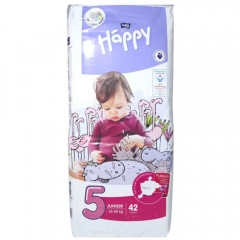-
 Thanh toán đa dạng, linh hoạtChuyển khoản ngân hàng, thanh toán tại nhà...
Thanh toán đa dạng, linh hoạtChuyển khoản ngân hàng, thanh toán tại nhà... -
 Miễn Phí vận chuyển 53 tỉnh thànhMiễn phí vận chuyển đối với đơn hàng trên 1 triệu
Miễn Phí vận chuyển 53 tỉnh thànhMiễn phí vận chuyển đối với đơn hàng trên 1 triệu -
 Yên Tâm mua sắmHoàn tiền trong vòng 7 ngày...
Yên Tâm mua sắmHoàn tiền trong vòng 7 ngày...
Handbook of Preschool Mental Health: Development, Disorders, and Treatment
-

- Mã sản phẩm: 1462533809
- (21 nhận xét)

- ASIN:1462533809
- Publisher:The Guilford Press; Second edition (October 25, 2017)
- Language:English
- Paperback:416 pages
- ISBN-10:9781462533800
- ISBN-13:978-1462533800
- Item Weight:1.33 pounds
- Dimensions:6.13 x 1.38 x 9.25 inches
- Best Sellers Rank:#1,468,177 in Books (See Top 100 in Books) #311 in Child Psychiatry #2,307 in Medical Child Psychology #2,766 in Popular Child Psychology
- Customer Reviews:4.8 out of 5 stars 21Reviews

Tính năng sản phẩm
• Highlight, take notes, and search in the bookMô tả sản phẩm
Review
"This comprehensive, superbly written and edited second edition provides a vital conceptual framework for considering child mental health, with tutorials on brain development, sensitive periods, and the impact of the early caregiving environment. It examines specific disorders that appear during the preschool period and describes interventions that have proven efficacious. This book should be required reading for child mental health professionals and developmental researchers."--Charles A. Nelson III, PhD, Professor of Pediatrics and Neuroscience, Harvard Medical School; Richard David Scott Chair, Boston Children’s Hospital
"This very timely volume is a valuable resource for students and clinicians interested in the mental health of preschoolers. It has the rare virtue of being remarkably readable while providing a scholarly review of recent advances in early psychopathology and its treatment. Luby has made an important contribution to disseminating knowledge about the psychiatric conditions and therapeutic interventions of early childhood."--Alicia F. Lieberman, PhD, Irving B. Harris Endowed Chair in Infant Mental Health and Professor, Department of Psychiatry, University of California, San Francisco
"Invaluable. All mental health disciplines are increasingly recognizing the importance of early development, and the critical need for clinicians to apply knowledge of early disruptions and adversity to growth and psychopathology models. This book offers tools from research to construct more effective interventions. I have used the book as a text with graduate students in social work, psychology, education, and child psychiatry, and recommend it strongly."--Anne R. Gearity, PhD, Department of Psychiatry, University of Minnesota
"A masterful and nuanced revision of an outstanding work, and one that I am sure will be referred to frequently. Readers will find much that is both scientifically and clinically useful as the chapters cogently summarize the state of the science in an accessible manner. Most impressive about this second edition is the strong developmental neuroscience theme, including coverage of normative early childhood brain development and the neural substrates of particular clinical problems."--Lauren S. Wakschlag, PhD, Professor and Vice Chair for Scientific and Faculty Development, Department of Medical Social Sciences, Northwestern University
"This second edition presents a comprehensive approach for understanding preschool mental health issues, expanding on the first edition. An increased focus on brain development and neurological issues reminds us of the biological underpinnings of development and behavior. At the same time, attention to environmental factors underscores the importance of early detection and intervention. A wide range of professionals who work with young children and their families should consider this resource as indispensable for informing their practice."--Robin L. Hojnoski, PhD, School Psychology Program, Lehigh University
"The organization of the handbook and the concise chapters divided into clinically relevant topics result in an easy to read guide on the often challenging topic of early childhood mental health. The divisions by diagnoses are the most helpful as they provide a quick but informative overview of a topic. This is a valuable resource for clinicians to use to easily reference a topic and get sufficient, but not burdensome, information. Part III is especially informative as it discusses therapies for early childhood intervention and provides only the necessary information.” ― Doody's Review Service Published On: 2017-02-02
"A milestone in understanding preschool psychiatric disorders has been reached with the publication of the Handbook of Preschool Mental Health...which offers significant insights on development and its influences on the onset of preschool mental disorders....This book is a rich source of information useful to practicing clinicians, including psychiatrists, pediatricians, family physicians, psychologists, and allied professionals, and to students of medicine." (on the first edition) ― Journal of Clinical Psychiatry Published On: 2008-01-01
"Should appeal to professionals working with preschool age children….The book should increase awareness of mental health in preschool age children and knowledge of age-appropriate assessments, and interventions applicable to both school and home settings." (on the first edition) ― Physical and Occupational Therapy in Pediatrics Published On: 2007-01-01
"A well-written and comprehensive work, appropriate for use by clinicians and trainees in psychiatry, psychology, nursing, and social work. It is also a useful resource for others who work with young children, including early childhood educators and pediatricians. It does an excellent job of pointing out the role of child development in the assessment and treatment of preschool children. Thoughtful and thought provoking, it encourages consultation and collaboration among disciplines." (on the first edition) ― Journal of Child and Adolescent Psychopharmacology Published On: 2007-01-01
Product Description
Comprehensively exploring the development of psychiatric disorders in 2- to 6-year-olds, this authoritative handbook has been thoroughly revised to incorporate important scientific and clinical advances. Leading researchers examine how behavioral and emotional problems emerge and can be treated effectively during this period of rapid developmental and brain changes. Current knowledge is presented on conduct disorders, attention-deficit/hyperactivity disorder, anxiety disorders, depressive disorders, autism spectrum disorder, attachment disorders, and sleep disorders in very young children. The volume reviews a range of interventions for preschoolers and their caregivers--including clear descriptions of clinical techniques--and discusses the strengths and limitations of the empirical evidence base.
New to This Edition
*Many new authors; extensively revised with the latest research and empirically supported treatments.
*Heightened focus on brain development and the neural correlates of disorders.
*Section on risk and resilience, including chapters on sensitive periods of development and the early environment.
*Chapters on parent-child interaction therapy, cognitive-behavioral therapies, attachment-based therapies, and translational approaches to early intervention.
About the Author
Joan L. Luby, MD, is the Samuel and Mae S. Ludwig Professor of Psychiatry (Child) at Washington University School of Medicine in St. Louis, where she is also founder and director of the Early Emotional Development Program. Dr. Luby’s research focuses on preschool mood disorders, particularly depression--its clinical characteristics, biological markers, and associated alterations in brain and emotional development in young children with depressive syndromes. Another key area of interest is treatment development that focuses on early psychotherapeutic intervention, sensitive periods, and neural markers of change. Dr. Luby’s contributions include establishing the criteria for identification, validation, and early intervention in depressive syndromes in the preschool age group, as well as studies showing the effect of parental nurturance and early experiences of poverty on brain development. She is a recipient of honors including the Gerald Klerman Prize for Clinical Research from NARSAD (now the Brain and Behavior Research Foundation) and the Irving Philips Award for Prevention from the American Academy of Child and Adolescent Psychiatry. Dr. Luby has published extensively in general and child psychiatry journals and serves on a number of editorial boards.
- Mua astaxanthin uống có tốt không? Mua ở đâu? 29/10/2018
- Saffron (nhụy hoa nghệ tây) uống như thế nào cho hợp lý? 29/09/2018
- Saffron (nghệ tây) làm đẹp như thế nào? 28/09/2018
- Giải đáp những thắc mắc về viên uống sinh lý Fuji Sumo 14/09/2018
- Công dụng tuyệt vời từ tinh chất tỏi với sức khỏe 12/09/2018
- Mua collagen 82X chính hãng ở đâu? 26/07/2018
- NueGlow mua ở đâu giá chính hãng bao nhiêu? 04/07/2018
- Fucoidan Chính hãng Nhật Bản giá bao nhiêu? 18/05/2018
- Top 5 loại thuốc trị sẹo tốt nhất, hiệu quả với cả sẹo lâu năm 20/03/2018
- Footer chi tiết bài viết 09/03/2018
- Mã vạch không thể phân biệt hàng chính hãng hay hàng giả 10/05/2023
- Thuốc trắng da Ivory Caps chính hãng giá bao nhiêu? Mua ở đâu? 08/12/2022
- Nên thoa kem trắng da body vào lúc nào để đạt hiệu quả cao? 07/12/2022
- Tiêm trắng da toàn thân giá bao nhiêu? Có an toàn không? 06/12/2022
- Top 3 kem dưỡng trắng da được ưa chuộng nhất hiện nay 05/12/2022
- Uống vitamin C có trắng da không? Nên uống như thế nào? 03/12/2022
- [email protected]
- Hotline: 0909977247
- Hotline: 0908897041
- 8h - 17h Từ Thứ 2 - Thứ 7
Đăng ký nhận thông tin qua email để nhận được hàng triệu ưu đãi từ Muathuoctot.com
Tạp chí sức khỏe làm đẹp, Kem chống nắng nào tốt nhất hiện nay Thuoc giam can an toan hiện nay, thuoc collagen, thuoc Dong trung ha thao , thuoc giam can LIC, thuoc shark cartilage thuoc collagen youtheory dau ca omega 3 tot nhat, dong trung ha thao aloha cua my, kem tri seo hieu qua, C ollagen shiseido enriched, và collagen shiseido dạng viên , Collagen de happy ngăn chặn quá trình lão hóa, mua hang tren thuoc virility pills vp-rx tri roi loan cuong duong, vitamin e 400, dieu tri bang thuoc fucoidan, kem chống nhăn vùng mắt, dịch vụ giao hang nhanh nội thành, crest 3d white, fine pure collagen, nên mua collagen shiseido ở đâu, làm sáng mắt, dịch vụ cho thue kho lẻ tại tphcm, thực phẩm tăng cường sinh lý nam, thuoc prenatal bổ sung dinh dưỡng, kem đánh răng crest 3d white, hỗ trợ điều trị tim mạch, thuốc trắng da hiệu quả giúp phục hồi da. thuốc mọc tóc biotin























 KHUYẾN MÃI LỚN
KHUYẾN MÃI LỚN Hỗ Trợ Xương Khớp
Hỗ Trợ Xương Khớp Bổ Não & Tăng cường Trí Nhớ
Bổ Não & Tăng cường Trí Nhớ Bổ Sung Collagen & Làm Đẹp
Bổ Sung Collagen & Làm Đẹp Bổ Thận, Mát Gan & Giải Độc
Bổ Thận, Mát Gan & Giải Độc Chăm Sóc Sức khỏe Nam Giới
Chăm Sóc Sức khỏe Nam Giới Chăm Sóc Sức khỏe Nữ Giới
Chăm Sóc Sức khỏe Nữ Giới Chăm sóc Sức khỏe Trẻ Em
Chăm sóc Sức khỏe Trẻ Em Thực Phẩm Giảm Cân, Ăn Kiêng
Thực Phẩm Giảm Cân, Ăn Kiêng Bổ Sung Vitamin & Khoáng Chất
Bổ Sung Vitamin & Khoáng Chất Bổ Tim Mạch, Huyết Áp & Mỡ Máu
Bổ Tim Mạch, Huyết Áp & Mỡ Máu Bổ Mắt & Tăng cường Thị lực
Bổ Mắt & Tăng cường Thị lực Điều Trị Tai Mũi Họng
Điều Trị Tai Mũi Họng Sức Khỏe Hệ Tiêu hóa
Sức Khỏe Hệ Tiêu hóa Chăm Sóc Răng Miệng
Chăm Sóc Răng Miệng Chống Oxy Hóa & Tảo Biển.
Chống Oxy Hóa & Tảo Biển.